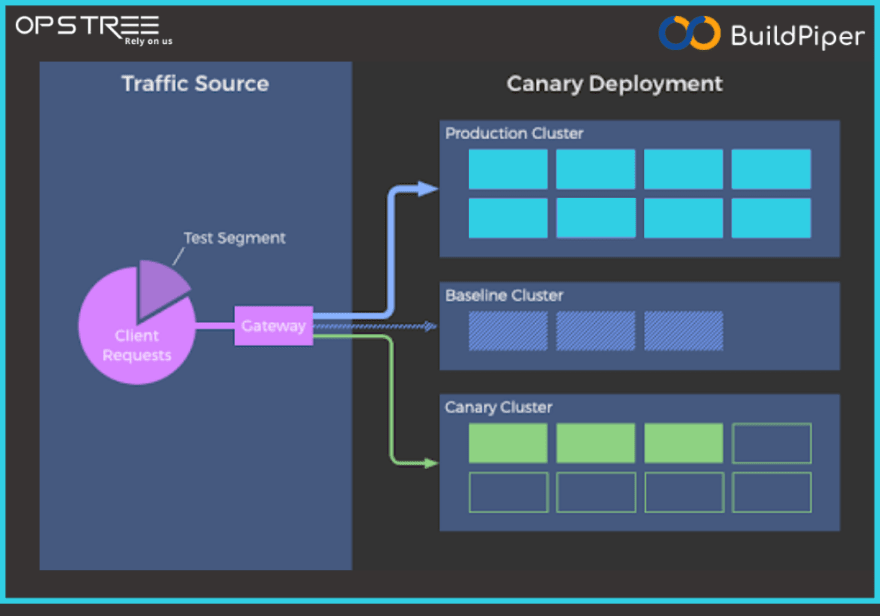Canary deployments support the incremental release of the software components, it allows features to be updated/rolled out in phases. It is a technique to reduce the risk of bringing in an update in production by slowly rolling out the changes to a small subset of users before allowing users to access it.
Here, in this blog, we’ve discussed the various scenarios when teams should not consider implementing Canary release deployment. But, before we dive into this, let’s discuss what all does the DevOps teams require for executing a Canary deployment strategy.
Basic Requirements for Canary Release Deployment!
The application and deployment architecture plays an important role in eliminating deployment downtime. DevOps team must ensure that their environment should meet the following requirements to execute Canary Release Deployment.
-A deployment pipeline that can build, test, and deploy to specific environments.
-A number of nodes or containers that are distributed behind a load balancer.
-A stateless application that allows any nodes in the cluster to serve requests at any time.
While canary deployments are an excellent strategy for business organizations looking for constant change and innovation, they do not fit in all scenarios. Canary release deployments may not be the right strategy if:
-The errors in even minor deployments can cause regulatory breaches in a given system, such as in healthcare on a system that manages patient data.
-If a failure in service deployment can have life-threatening impacts, such as applications that are used for managing the power grid or emergency services.
-If the financial or organizational consequences of an application failure might cause irreparable harm or major losses to your business.
While executing Canary deployment, your DevOps team might face challenges, especially when Microservices are involved. But, a Microservices management platform such as BuildPiper can help enterprises modernize their IT infrastructure with seamless and secure microservices delivery.
With BuildPiper, your DevOps team becomes equipped with an end-to-end Kubernetes & Microservices Application Delivery Platform _that enables more than 10X reduced time & investments required to onboard & securely manage Kubernetes & Microservices application setup and deployments along with the ability to run zero-touch, fully-automated & secured CI/CD pipelines. _
Read more on Canary Deployment, its different stages and much more, here in this blog!




Top comments (0)